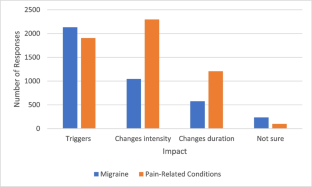2024-01-11 ジョージア大学 (UGA)
◆このような天気予測への関心が高いことが示され、片頭痛患者の72%と痛み関連疾患患者の66%が、予測に基づいて行動を変える意向があると報告されています。エルシク氏は、信頼性のある痛みに基づく天気予測を作成するには追加の研究が必要だが、この研究がそのようなリソースの開発の重要性を強調していると述べています。
<関連情報>
- https://news.uga.edu/pain-based-weather-forecasts-could-influence-actions/
- https://link.springer.com/article/10.1007/s00484-023-02575-4
天候に基づく痛みの認識と日常活動への影響 Perceptions of weather-based pain forecasts and their effect on daily activities
Christopher J. Elcik,Christopher M. Fuhrmann,Scott C. Sheridan,Kathleen Sherman-Morris &Andrew E. Mercer
International Journal of Biometeorology Published: 21 November 2023
DOI:https://doi.org/10.1007/s00484-023-02575-4

Abstract
As studies begin to have more success uncovering the relationships between atmospheric conditions and pain, weather-based pain forecasting becomes more of a reality. In this study, a survey was used to determine if people living with migraines and/or other pain-related conditions are receptive to weather-based pain forecasts. Moreover, we wished to identify whether these forecasts actually impact the decision-making of those who use them. Survey respondents were generally eager to use these novel forecasts. Furthermore, when provided with different scenarios involving weather-based pain forecasts, the respondents’ actions were altered. When a hypothetical forecast indicated that the weather was conducive to migraines or other types of pain, many indicated that they would likely take preventative measures (e.g., medication). Additionally, respondents were less likely to continue with a planned activity, regardless of length, as forecast severity increased. The results from this survey highlight the importance of developing and improving weather-based pain forecasting.

